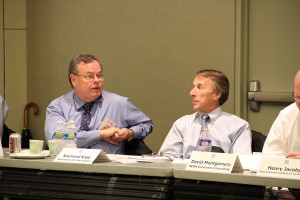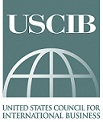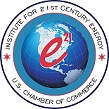The United States Council Foundation (USCF) and United States Council for International Business (USCIB), its partners and sponsors, with particular assistance from the Business and Industry Advisory Committee to the OECD and members of the USCIB Environment Committee, have launched the Green Economy, Green Dialogue project. This project will include a series of dialogues that will engage the private sector and inform international policy discussions.

We are privileged to have worked with Resources for the Future (RFF) in this project. RFF hosted the first dialogue in Washington, DC. The 2nd Green Economies Dialogue will be hosted by the Business and Industry Advisory Committee to the OECD at the OECD headquarters in Paris. Both BIAC and RFF will continue to be active participants in subsequent Dialogue sessions. The third and fourth Dialogues will take place in Asia and South America in 2012. In addition to the Dialogues, more than a dozen peer-reviewed research papers will be commissioned to be published in the journal Environmental Economics prior to Rio+20.
(Photo above: Brian Flannery, Exxon Mobil Corporation with Ray Kopp, Resources for the Future (RFF))
About the United States Council for International Business:
The United States Council for International Business (USCIB) promotes open markets, competitiveness and innovation, sustainable development and corporate responsibility, supported by international engagement and prudent regulation. Its members include top U.S.-based global companies and professional services firms from every sector of our economy, with operations in every region of the world. With a unique global network encompassing the International Chamber of Commerce, the International Organization of Employers and the Business and Industry Advisory Committee to the OECD, USCIB provides business views to policy makers and regulatory authorities worldwide, and works to facilitate international trade and investment.
USCIB’s Environment Committee promotes appropriate environmental protection within an open trade and investment system; and advances continuous improvement in technological innovation and environmental management within the context of economic growth as fundamental to sustainable development. USCIB has recently launched the International Business Green Economy Dialogue (IBGED) project. IBGED seeks to provide a clearer understanding of the path forward to building international cooperation to green economic growth. USCIB and its partners are seeking dialogue via educational, outreach and advocacy efforts in international policy deliberations, through a series of meetings to engage the private sector and inform discussions ahead of Rio+20. The IBGED Project also includes the development of a series of peer-reviewed papers written by independent academics to provide specialized perspectives on a range of green economy areas. The ‘Green Perspectives’ academic papers are to be published in a special edition of Energy Economics contemporaneous with Rio+20.
About the United States Council Foundation:
 The United States Council Foundation (USCF), a private non-profit affiliate of the United States Council for International Business (USCIB), is USCIB’s educational and research arm. It undertakes educational activities to promote the benefits of a free market economy, demonstrate and document the role of the corporate private sector in economic growth and social development, and advance sustainability in environmental management.
The United States Council Foundation (USCF), a private non-profit affiliate of the United States Council for International Business (USCIB), is USCIB’s educational and research arm. It undertakes educational activities to promote the benefits of a free market economy, demonstrate and document the role of the corporate private sector in economic growth and social development, and advance sustainability in environmental management.
About the Business and Industry Advisory Committee (BIAC) to the Organisation for Economic Cooperation and Development (OECD):
 BIAC is an independent international business association devoted to advising government policymakers at OECD and related fora on the many diversified issues of globalisation and the world economy.
BIAC is an independent international business association devoted to advising government policymakers at OECD and related fora on the many diversified issues of globalisation and the world economy.
BIAC promotes the interests of business by engaging, understanding and advising policy makers on a broad range of issues with the overarching objectives. Through its 37 policy groups, which cover the major aspects of OECD work most relevant to business, BIAC members participate in meetings, global forums and consultations with OECD leadership, government delegates, committees and working groups.
BIAC advocates consensus business and industry views so as to ensure that the resulting policy instruments and guidance assist, not hinder, private sector capacity to generate growth and prosperity.
BIAC’s strength comes from its close relationship with its Members, the major business organisations in the OECD member countries, as well as its Observers, leading business and industry associations in non-OECD member countries. BIAC is also supported by its Associate Experts; numerous supra-national sectoral business organisations. Over the course of 2010, more than 2100 business representatives were actively involved in the work of the OECD through BIAC.
 About the Confederação Nacional da Indústria, CNI (Brazilian National Confederation of Industry): The Brazilian National Confederation of Industry (CNI) is the largest and highest-level representation of industry in Brazil with a mission to promote a favorable business environment, enhancing companies’ competitiveness and promoting sustainable development in Brazil. CNI represents and coordinates initiatives gathering 27 state federations of industry, over 100,000 industrial establishments and sectoral associations, encompassing issues such as: economic policy, infrastructure, environment, SME development, labor relations, social responsibility and international strategies.
About the Confederação Nacional da Indústria, CNI (Brazilian National Confederation of Industry): The Brazilian National Confederation of Industry (CNI) is the largest and highest-level representation of industry in Brazil with a mission to promote a favorable business environment, enhancing companies’ competitiveness and promoting sustainable development in Brazil. CNI represents and coordinates initiatives gathering 27 state federations of industry, over 100,000 industrial establishments and sectoral associations, encompassing issues such as: economic policy, infrastructure, environment, SME development, labor relations, social responsibility and international strategies.
 About Keidanren (Japan Business Federation):
About Keidanren (Japan Business Federation):
Keidanren (Japan Business Federation) is a leading Japanese business organisation, which represents 1,281 companies, 127 industrial associations, and 47 regional economic organisations – as of 15 June 2011. Keidanren is also a BIAC Member organisation.
Keidanren’s mission is to promote economic growth in Japan and the rest of the world, and to enhance companies’ capability for creating value in order to accelerate Japan’s transformation to sustainable and private sector-led economy, by encouraging the idea of individuals and local communities.
Keidanren establishes timely consensus and works towards resolution of a variety of issues concerning the Japanese business community. It also actively engages in close dialogue with its stakeholders including political leaders, government officials, labour unions, and citizens. Keidanren urges its members to adhere to Charter of Corporate Behaviour and Global Environment Charter, in order to recover public confidence in businesses. Keidanren also works to address international challenges and to strengthen economic relationships with other countries through policy dialogue with governments, business groups and relevant international organisations.
We would like to thank our Partners and Sponsors who made these Dialogue Sessions possible:
HOST ASSOCIATIONS:






Sponsoring Companies:

![]()
![]()






Sponsoring Associations:



